‘He was a pious man’: The Gaza neighborhood shocked to find Israeli hostages in their midst
The Aljamal family was widely respected in Gaza’s Nuseirat camp. They were known as pious and prominent members of the community. While people knew they had connections to Hamas, neighbors say no one could have guessed how deep those links truly went.
When Israeli forces stormed the Aljamals’ building on June 8 they found Almog Meir Jan, Andrey Kozlov and Shlomi Ziv, hostages who had been captured from the Nova music festival on October 7, cowering in a darkened room.
The experience of the three men – alongside that of Noa Argamani who was held in another house nearby, belonging to the Abu Nar family – echoes testimony from previously released hostages. They describe being confined among the civilian population, rather than in Hamas’ vast tunnel network under Gaza.
In the aftermath of last month’s rescue, neighbors in Nuseirat, a refugee camp in central Gaza, told CNN they were shocked to learn that Ahmed Aljamal, a physician, and his family had kept hostages in their midst.
“Had we known, had he told us, we would have taken safety precautions, hide or move to somewhere else,” one neighbor, Abu Muhammad El Tahrawi, said.
Dr. Aljamal, 74, was a general practitioner and also led the call to prayer at the local mosque, waking early every day to get there before dawn.
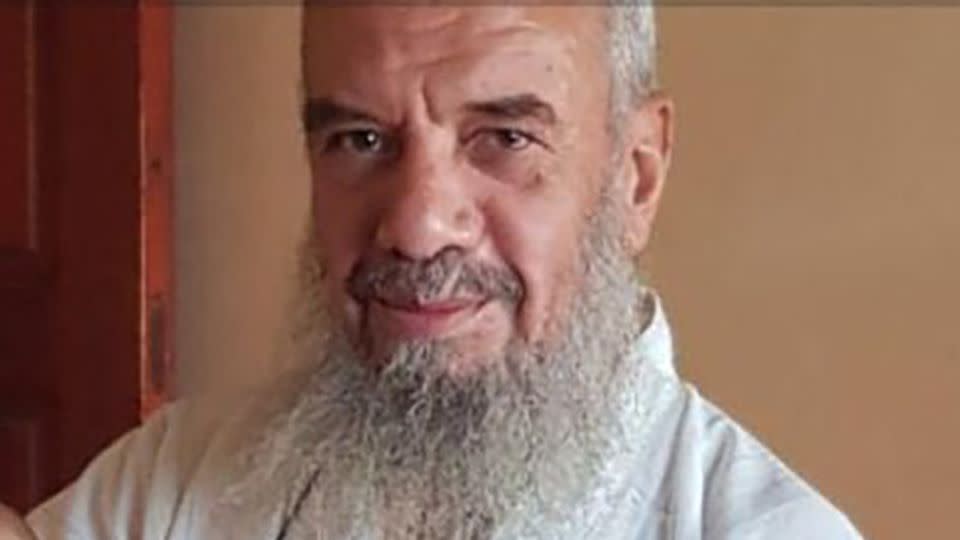
“He was a pious man,” neighbor Abdelrahman El Tahrawi said. “He leads the prayer, then he goes back to his home. He didn’t mix with people, didn’t complain about other people, and no one complained about him. He was a man who minded his own business.”
Dr. Aljamal’s son Abdallah, 36, was a freelance journalist who most recently wrote for the US-based Palestine Chronicle, for which he filed regular dispatches on the war in Gaza.
Neighbors told CNN it was no secret that the family had links to Hamas. “We were worried about the Aljamal house. They are with Hamas,” said a neighbor and family acquaintance.
Abdallah had served as a spokesman for Gaza’s Ministry of Labor as recently as 2022, a position entrusted only to Hamas members, according to political analysts. He also showed his support for the group on social media. On Facebook, he posted pictures of his young son dressed in the fatigues of Hamas’ armed wing, the Qassam Brigades, and on October 7 openly praised the group’s attack on Israel. In a 2022 video post, Abdallah commended the Hamas operation to kidnap Israeli soldier Gilad Shalit, who was held in Gaza between 2006 and 2011, and proclaimed: “Brothers, all of us are prepared to die for the resistance.”
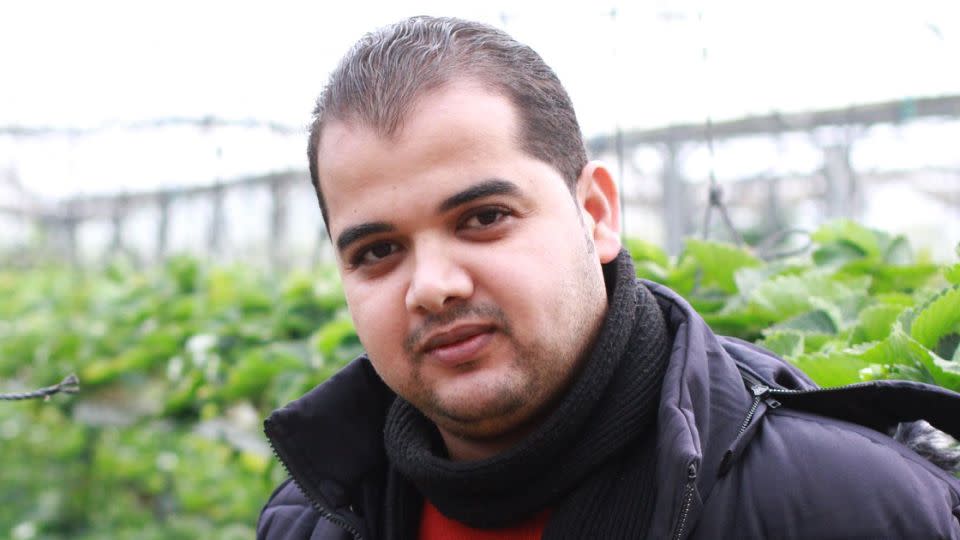
Public support for Hamas as a political movement in Gaza has ranged from 34 to 42% over the past seven months, according to polls by the Palestinian Center for Policy and Survey Research. Polling in Gaza faces multiple challenges, including population displacement, people’s reluctance to criticize Hamas publicly and the risks to personal safety in war time. The true level of support for Hamas may be lower, according to Dr. Mkhaimar Abusada, associate professor of Political Science at Al-Azhar University in Gaza, who is now based in the Egyptian capital of Cairo.
A higher proportion of Gazans are more broadly supportive of armed resistance, the polling suggests, despite more than nine months of war that has obliterated the strip.
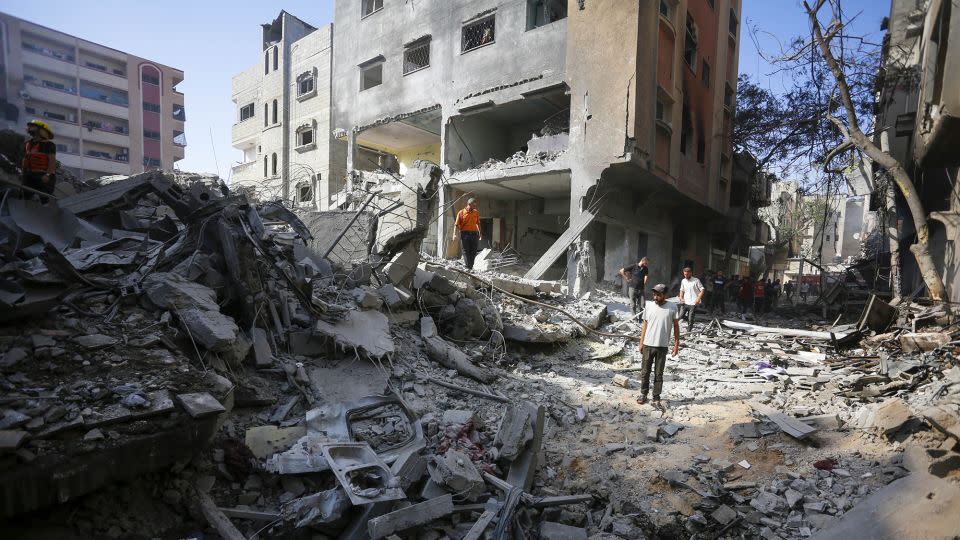
Some people who were not affiliated with Hamas or other Palestinian militant groups took part in the October 7 incursion into southern Israel, streaming through the border fence after it was breached by fighters – some stealing from Israeli communities and others taking hostages back into Gaza. At least 1,200 people were killed and some 250 people in total were taken from Israel into the strip, according to Israeli authorities.
A senior Hamas official last month told CNN the group does not know how many hostages are still alive, suggesting it may not have full oversight of their whereabouts. Israeli opposition leader Benny Gantz told an Israeli TV channel that Israel knows to a “very close number” how many hostages remain alive.
Despite the level of support in Gaza for Hamas, which has governed the territory since 2007, far fewer people would be accepted into the trusted inner circles of the Islamist movement.
Hostages being held by civilians under the direction of Hamas is unlikely unless they have very strong ties to and are well trusted by the group, according to Abusada.
“Hamas only trusts Hamas when it comes to those very sensitive issues such as Israeli hostages,” he said.
There may be other reasons why Hamas chose to house hostages in civilian homes, however.
Hussein Ibish, senior resident scholar at the Arab Gulf States Institute in Washington, said that approach fits Hamas’ strategy to get Israel “bogged down in the urban centers of Gaza and push them into a counterinsurgency that cannot end, which is the perpetual war Hamas says it wants.”
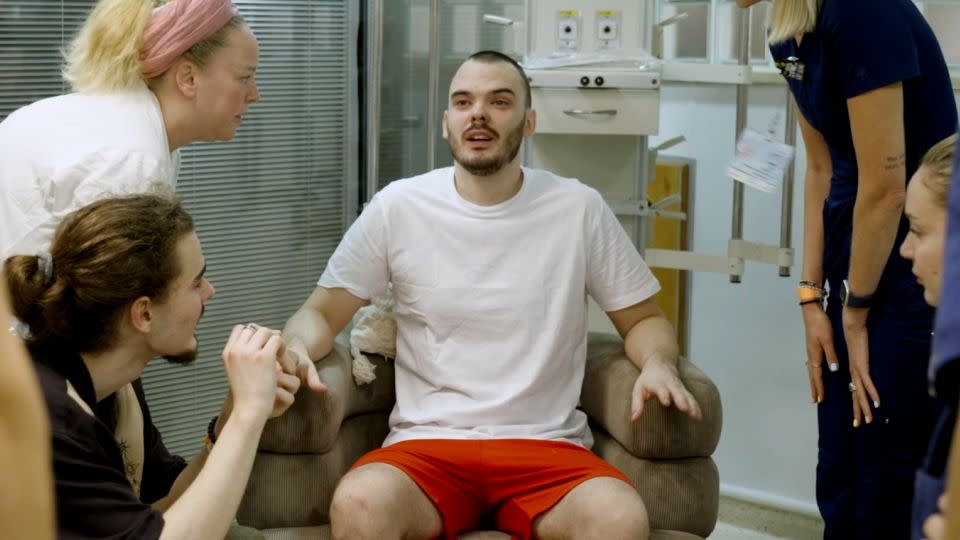
‘Creative punishment’
The three hostages who were held in the Aljamal family building were kept there for around six months, according to Andrey Kozlov, who spoke last week to CNN.
Kozlov described physical and psychological abuse he received at the hands of his guards. One in particular, he said, “was a big fan of creative punishment” who on one occasion forced him to spend two days on a mattress without moving or talking as a penalty for standing near an open window, and on another occasion covered him with blankets in the summer heat for washing his hands with drinking water.
“I was trying to breathe through the space between the mattress and blankets,” he said.
During that time the hostages could hear the family, including children, going about their daily lives on the floor below, according to Aviram Meir, the uncle of Almog Meir Jan. In the weeks before Israel’s hostage raid, the Aljamal family had been continuing as usual, outwardly at least, and Abdallah’s most recent article for the Palestine Chronicle was published just the day before.
Then, on the morning of June 8, Israeli forces stormed Nuseirat.
Zainab Aljamal, Abdallah’s sister, who was in the family house at the time of the raid, wrote a Facebook post that day describing what happened. The Israeli soldiers entered and shot Abdallah’s wife Fatima first, before killing Ahmed and Abdallah, she wrote. Zainab hid with Abdallah’s children under a bed, according to the now-deleted Facebook post which was shared with CNN by independent open-source researcher Thomas Bordeaux.
Zainab said in the post that the family had been waiting for the moment they would be killed by Israeli forces. “Since the start of the war, we have been waiting for this moment. We did not know how it would come and in what horrific way it would happen, but we were aware that it would inevitably come.”
As the three hostages were rescued from the Aljamal house, around 200 meters (650 feet) away Israeli forces carried out a simultaneous raid on a second apartment block – which was home to the Abu Nar family, according to Israeli officials – to retrieve Argamani.
Argamani had become one of the most recognized Israeli hostages when widely circulated footage showed her being hoisted onto the back of a motorcycle and driven away from the Nova music festival on October 7 as her partner was seized and made to walk with his hands behind his back.
Less is known about Argamani’s captors. Her family members told Israeli media she had been held by a relatively well-off family who made Argamani wash dishes for the household, reportedly telling her she was lucky to be held by them as other hostages were experiencing much worse.
In a video released by the Israel Defense Forces (IDF) that shows Argamani’s rescue, troops are seen inside an apartment on the upper floor of a building, passing a small kitchen.
The Israeli Prime Minister’s Office told CNN she was held by the Abu Nar family but did not provide further details.
According to unofficial lists of those killed circulated on Arabic-language media and social media, Mohamed Ahmad Abu Nar died alongside his wife and child in Israel’s Nuseirat operation last month. Three relatives of Abu Nar also posted on social media announcing he had been killed by Israeli forces that day.
CNN cannot independently confirm whether Abu Nar was involved in holding Argamani and his relatives have not responded to requests for comment.
‘A normal man’
Neighbors of the Abu Nar house in Nuseirat told CNN they saw Israeli special forces enter and leave the building without much of a fight.
Bilal Mazhar, a 16-year-old student, said his window was opposite the window of the apartment in which Argamani was being held, just half a meter away, but he never saw any sign of her presence until Israeli forces brought her out.
“They pulled her out normally and no one intervened, and there was no shooting at them,” Mazhar said.
Mohamed Ahmad Abu Nar seemed to share very little online about his life, and local people were reluctant to share many details about the Abu Nar family, but they did express surprise and concern that a hostage had been held in their midst.
“He had young children at home,” said Khalil Al-Kahlot, a civil servant in Gaza. “No one would expect him to hold a hostage like this, in homes and among people.”
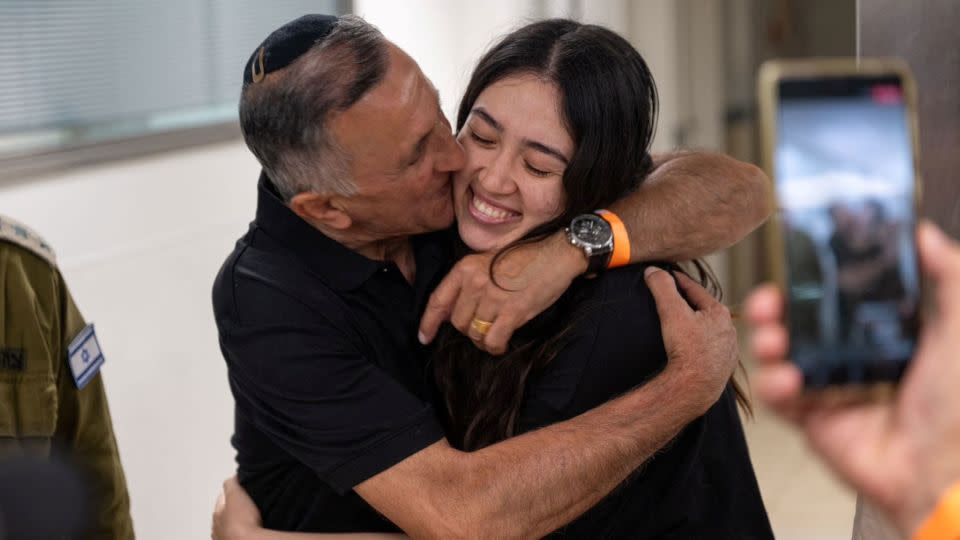
Al-Kahlot, who told CNN he’d been in Nuseirat for the past four months, said Mohamed Ahmed was “ordinary” and “a normal man,” adding that he had never suspected he was affiliated with Hamas.
“They are people in Hamas, but we did not know that,” said another neighbor of the Abu Nar family. “If we had known there was something there, no one would have stayed in the area.”
After Israeli forces evacuated the hostages, airstrikes hit both of the buildings they were rescued from and now only rubble remains at each site.
More than 270 Palestinians were killed in Nuseirat on June 8, according to Gaza health ministry officials, which doesn’t distinguish between militants and civilians, and hundreds more were injured. Israel puts the number of deaths at under 100. CNN cannot independently confirm the figures.
Many locals questioned why so many Palestinians had to die for the Israeli forces to rescue just four hostages.
Al-Kahlot said: “People died because they were freeing her, and no one was looking at us.”
CNN is not identifying some interviewees for their own security.
CNN’s Bianna Golodryga, Eugenia Yosef and Gianluca Mezzofiore contributed to this report.
For more CNN news and newsletters create an account at CNN.com

